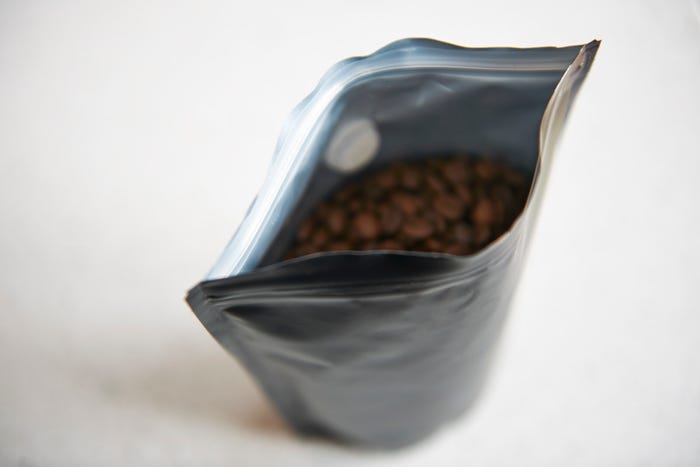Much progress has been made in testing and developing new designs aimed at greatly improving the recyclability of flexible packaging, according to resource recovery specialist Axion Consulting (Chesire, UK), which is heading a collaborative R&D project involving high-profile global brands.
July 1, 2015
Much progress has been made in testing and developing new designs aimed at greatly improving the recyclability of flexible packaging, according to resource recovery specialist Axion Consulting (Chesire, UK), which is heading a collaborative R&D project involving high-profile global brands.
Axion is collaborating with several partners on the Reflex project; Dow Chemical (Midland, MI ), Amcor (Abbotsford, Australia), Interflex Group (Wilkesboro, NC), Sita (Arnhem, The Netherlands), Tomra Sorting (Drengsrudhagen, Norway), Nestlé (Vevey, Switzerland) and Unilever (Englewood Cliffs, NJ). The two-year innovative project is co-funded by the UK’s innovation agency, Innovate UK. The two-year innovative project is co-funded by the UK’s innovation agency, Innovate UK. The project has just launched a new website where more details can be found.
|
Packaging producer Amcor is one of the members of the Reflex Project. |
The major focus of the research is looking into and evaluating other alternatives to previously hard to recycle multi-layer films, which have the potential to be more suitable for recycling but still delivers the performance requirements and technical properties required for products ranging from confectionary to detergent.
“We are making significant progress. For example we have taken multi-layer packaging structures that currently use incompatible polymers and we have redesigned them using polymers which can potentially be recycled together,” said Axion’s Project Engineer Richard McKinlay, after speaking at the Plastics Recycling Expo (PRE) in June.
In his presentation ‘How to design flexible packaging films which CAN be sorted for recycling’, he outlined the latest breakthroughs from the project, which has attracted high levels of interest from Europe and internationally. Much interest has been shown by other brand owners, non-governmental organizations and packaging suppliers.
Another big win includes optimization of Near Infra-red (NIR) sorting technologies to detect and separate mixed polyolefin (PP and PE) packaging, such as sweet wrappers, crisp packets and bread bags. This has expanded what can be sorted and separated for recycling from mixed post-consumer flexible packaging.
Capturing this mixed polyolefin packaging would divert more of it from landfill, while creating new options for the types of recycled polymers that could subsequently be made from it.
“We think existing NIR technology is capable of doing a lot more sophisticated sorting, such as identifying and rejecting other problem flexible packaging structures containing incompatible materials which could degrade the recycled polymer,” continued Richard. “Just as importantly, future research will also be concentrating on how to make recyclable packaging more readily identifiable by automated sorting equipment.”
He added: “We are really pleased with the research and positive results achieved in the first six months of the project and encouraged by the high levels of interest shown by the sector.”
The Reflex project aims to create a circular economy for flexible packaging in the UK by involving the whole supply chain, from polymer production and packaging manufacture to waste management and recycling.
Flexible packaging such as plastic bags, confectionery wrappers, frozen food bags and pouches makes up nearly a third (32%) of consumer plastic packaging in the UK, however virtually all of this 414,000 tonnes produced annually ends up in landfill or energy recovery. By contrast 58% of plastic bottles are recycled.
Further studies will delve into how flexible packaging can be reprocessed into high-quality recycled plastic pellet suitable for use in the manufacture of a wide range of products. It is predicted that the market will follow a similar model to that for plastic bottle recycling and take 10 years to mature to a point at which more than 50% of flexible packaging is diverted from the waste stream.
About the Author(s)
You May Also Like



